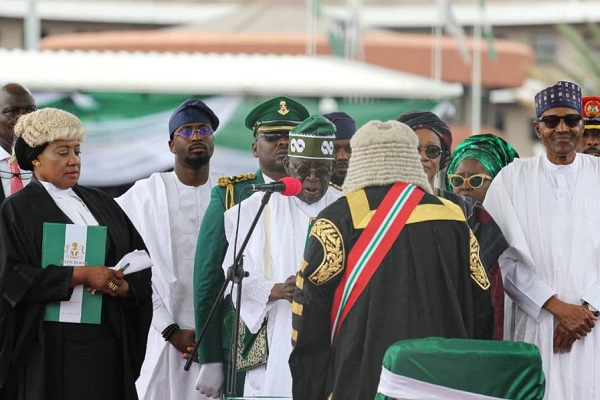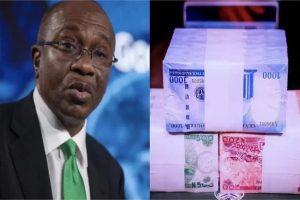If the general elections were the most significant events in Nigeria’s political sector in 2023, the removal of subsidy on petrol was the equivalent in the economic sector.
Bola Ahmed Tinubu who emerged from the elections as the country’s president declared in his inaugural speech on May 29: “The fuel subsidy is gone.. “The subsidy can no longer justify its ever-increasing costs in the wake of drying resources. We shall instead rechannel the funds into better investment in public infrastructure, education, health care and jobs that will materially improve the lives of millions.”

Since then, nothing has remained the same for the economy and the citizens. The president’s pronouncement prompted a spike in the pump price of petrol from about N187 per litre to about N700 as at December, driving up the overall cost of living and doing business in the country.
Within two months of removal of the fuel subsidy, the entire economy virtually fell apart. Many independent petroleum products marketers could not restock. With motorists, road transporters and small-scale businesses needing about five times more money to fuel their vehicles and power generating sets, they were compelled to park their vehicles or close shop. Transporters who mustered enough money to put their vehicles on the road commensurately raised their fares beyond the reach of commuters and traders. Many car owners parked their cars to join millions of Nigerians who commute on their feet and on public transport. In big cities like Lagos and Abuja, a number of junior workers slept at any available space near their work places on work days, returning to their homes only during weekends, to be able to survive on their salaries.
Similarly, as a result of high transport fares, traders, including raw material suppliers, priced their wares beyond the reach of end users, including businesses – from small to large-scale manufacturers.
Organized labour threatened a nationwide strike if the government failed to reverse itself as former president Goodluck Jonathan did in 2012, when he tried to end subsidies. But after negotiations with the Tinubu administration, the unions reneged on their threat.
But President Tinubu insisted there was no going back on the subsidy removal. “This is one decision we must bear to save our country from going under and take our resources away from the stranglehold of a few unpatriotic elements,” President Tinubu reiterated in his Democracy Day address on June 12.
The Tinubu administration is confident that ending subsidy payments will free up resources for massive infrastructure investments in transportation, energy and other sectors. He also maintains that subsidy removal will aid climate action. Without the subsidy, Nigeria could conserve more than 15 million tonnes of Carbon Dioxide (CO2) each year.
In early August, Vice President Kashim Shettima said that without the subsidy, Nigeria could conserve more than 15 million tonnes of CO2 each year, helping the nation to attain its nationally determined contributions to the Paris Agreement.
According to him, the National Council on Climate Change’s initial analysis shows a potential 30 per cent decrease in everyday fuel usage, equal to 20 million litres or 42,800 tonnes of CO2 emissions.

That may, well, be so, but nearly six months down the line, the excruciating pangs of the subsidy removal on citizens and businesses, in terms of high cost of living and doing business, is still biting hard.






